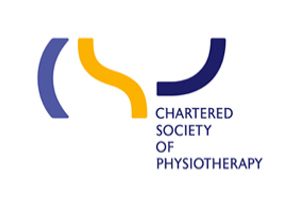
posted 21st July 2025
21st July
2 weeks ago
Introduction to Home Physiotherapy
Home physiotherapy is a highly effective approach for elderly patients who wish to receive expert care without leaving the comfort of their own home. For many older adults, reduced mobility or health concerns can make traveling to a clinic challenging. By bringing elderly physiotherapy directly into the patient’s own home, individuals benefit from personalized rehabilitation services tailored to their unique needs and living environment. This approach not only supports patients in regaining strength and improving mobility, but also helps build confidence and independence in daily life. With physiotherapy at home, elderly patients can work towards their goals in a familiar setting, leading to better outcomes and an enhanced quality of life.
When to Seek Professional Help: Ensuring Safety in Elderly Mobility Physiotherapy at Home
Maintaining mobility as we age is crucial for independence and quality of life. While many older adults strive to stay active, there comes a time when professional guidance can make a significant difference. Knowing when to seek the expertise of a physiotherapist, and how to complete treatment advice safely, is vital for effective progress. Physiotherapists are registered with the Care Professionals Council, ensuring high standards of care and professionalism.
We believe in empowering you with the knowledge to make informed decisions about your health and to create a safe environment for your rehabilitation journey.
Benefits of Physiotherapy for the Elderly at Home
There are many advantages to choosing physiotherapy at home for elderly patients. One of the most significant benefits is the ability to improve balance and reduce the risk of falls, which is crucial for maintaining independence. Home physiotherapy also plays a key role in managing chronic pain and supporting recovery after events such as stroke or surgery. Whether it’s musculoskeletal physiotherapy for joint pain or neurological rehabilitation for conditions like Parkinson’s disease, receiving treatment in the patient’s own home allows for a more personalized and comfortable experience.
Additionally, physiotherapists often collaborate with occupational therapists to create comprehensive treatment plans, ensuring that all aspects of the patient’s health and mobility are addressed. This team-based approach leads to improved mobility, reduced pain, and a greater sense of well-being for elderly patients.
When Should You Consider Physiotherapy?
It’s not always easy to know when a slight wobble or a bit of stiffness warrants professional attention. However, recognising the signs that indicate a need for physiotherapy can prevent more serious issues down the line. Consider consulting a physiotherapist if you or a loved one experience any of the following:
1. Persistent pain or discomfort
If you’re experiencing ongoing pains or discomfort in your joints or muscles—a common issue for older people—that limits your movement, a physiotherapist can assess the cause and develop a plan to manage and alleviate these pains. Pain often leads to reduced activity, which can further worsen mobility.
2. Increased falls or near misses
A fall can be a warning sign. If you’ve had one or more falls, or frequently feel unsteady on your feet, an assessment by a multi-disciplinary team is often recommended. There are hundreds of reasons people fall and that is why it takes a team approach to assess and manage. A physiotherapist is part of the recommended review process, they can target balance deficits and implement targeted falls prevention strategies. To find out more about managing falls, click here
3. Difficulty with daily activities
Struggling with everyday tasks like getting out of a chair, walking up stairs, reaching for items, or getting dressed are clear indicators that mobility is declining. Too frequently, help is put in place, in the form of a care package, which at times, can increase dependence rather than increasing independence. A physiotherapist can help you improve strength and regain strength, as well as confidence and coordination needed for these essential activities. Mobility training also plays a crucial role in enabling elderly individuals to carry out daily tasks independently and safely, further supporting their autonomy.
4. Noticeable changes in walking pattern
If your walking has become slower, more shuffling, or you find yourself needing to hold onto furniture more often, these are signs that your walking has deteriorated. Physiotherapists are movement specialists, we are able to analyse your walking pattern and provide education and exercises to improve it. It is possible that your therapist may recommend additional walking aids to help with stability.
5. Recovery from a recent illness, surgery, or injury
After a hospital stay, surgery (such as a hip or knee replacement), or an injury, mobility can be significantly impacted. Hospital discharge is a critical time, and physiotherapy is important in supporting recovery and preventing complications after discharge. The British Geriatric Society report that 30% of individuals over the age of 65, experience deconditioning after a hospital stay.
To find out more about recovering from a joint replacement, click here
6. Managing a neurological condition
For individuals living with conditions such as, Parkinson’s disease, stroke, or multiple sclerosis, Neuro physiotherapy is an ongoing and vital part of managing symptoms and maintaining functional independence for as long as possible. To find out more about how Neurological Physiotherapy is different, click here
7. Reduced confidence in movement
Sometimes, the fear of falling or pain can lead to a significant reduction in activity, even if physical limitations aren’t severe. A physiotherapist can help rebuild confidence through graded exercises and education, encouraging safe and active participation in life.
Physiotherapy treatments are tailored to individual needs to address these issues, helping to improve mobility, manage pains, and support recovery.
Conditions Treated by Home Physiotherapy
Home physiotherapy is suitable for a wide range of conditions commonly experienced by older adults. Physiotherapists can provide expert care for neurological conditions such as stroke, Parkinson’s disease, and multiple sclerosis, as well as musculoskeletal injuries and post-surgical rehabilitation. Chronic pain, joint stiffness, and balance issues are also frequently managed through home-based treatment.
By conducting a comprehensive assessment, physiotherapists are able to identify specific areas of concern and develop individualized treatment plans to address them. Whether the goal is to recover after surgery, manage ongoing pain, or simply improve overall mobility and balance, home physiotherapy offers the support and expertise needed to help patients achieve their best possible outcomes. Additionally, elderly physiotherapy often includes cognitive rehabilitation for patients experiencing cognitive decline, ensuring a holistic approach to their care.
How to Ensure Safety?
At-home physiotherapy offers convenience and allows you to work towards your goals in a familiar environment, making the most of your home environment to support safe and effective physiotherapy. Consider these essential tips for staying safe:
- Make sure the area is free of clutter and tripping hazards.
- Wear comfortable, non-slip footwear.
- Keep water nearby to stay hydrated.
- Use sturdy furniture for support if needed.
Additionally, always use the appropriate treatment techniques as demonstrated by your physiotherapist to maximize safety and effectiveness during your sessions.
Prepare Your Environment
Before each session, take a few moments to ensure your own home is safe and conducive to exercise:
- Clear the area: Remove clutter, loose rugs, electrical cords, or furniture that could be a trip hazard. You need enough space to move freely.
- Good lighting: Ensure the area is well-lit so you can clearly see your surroundings and equipment.
- Stable surfaces: If completing balance exercises, ensure it’s close to a sturdy piece of furniture or a wall. The kitchen worktop is often a good height and allows you to practice a number of different types of balance exercises. Avoid unstable items like lightweight chairs.
- Appropriate footwear: Wear supportive, non-slip shoes, even indoors. Avoid loose slippers, without a supportive back to them or walking in socks, even grip socks quickly lose their shape and grip.
A home physiotherapy service is designed to adapt to the unique needs and layout of patients' own homes, ensuring a personalized and effective service.
Home Visit and Assessment: What to Expect
When you arrange a home physiotherapy visit, a chartered physiotherapist will come to your home to conduct an extensive assessment. This process involves evaluating your mobility, strength, balance, and coordination, as well as discussing your medical history and any specific concerns or goals you may have.
The physiotherapist will then work with you—and, if appropriate, with occupational therapists—to develop a personalized treatment plan. This plan may include targeted exercises, manual therapy, and education on pain management and fall prevention strategies. The aim is to support independent living and enhance your overall quality of life.
With the guidance of a dedicated team of physiotherapists and occupational therapists, you can expect compassionate, patient-centered care that is tailored to your individual needs, helping you to regain confidence, improve mobility, and enjoy a more active life in your own home.
Communicate Openly with Your Physiotherapist
Your physiotherapist is your partner in this journey. Open and honest communication is key to safe and effective treatment, and is especially important in elderly care to ensure all needs and concerns are addressed:
- Report pain or discomfort: Inform your therapist if an exercise causes pain, dizziness, or unusual discomfort. They can provide further information on whether to push through the discomfort and can modify the exercise or technique if appropriate to.
- Discuss your energy levels: Be honest about how you’re feeling. Fatigue can increase the risk of falls. Your therapist can adjust the intensity or duration of the session.
- Ask Questions: If you’re unsure about an exercise, its purpose, or how to perform it correctly, ask! Understanding is crucial for adherence and safety.
- Provide Feedback: Let your therapist know what feels easy, challenging, or uncomfortable. This helps them tailor the programme effectively.
Follow Instructions Carefully
Your physiotherapist provides specific instructions for a reason. Adhering to them is vital for your safety and progress, and helps to improve quality of life and rehabilitation outcomes:
- Proper Form: Focus on performing exercises with the correct technique, even if it means doing fewer repetitions. Incorrect form can lead to injury.
- Pace Yourself: Don’t rush through exercises. Take your time and focus on controlled movements.
- Use Aids as Directed: If your therapist recommends a walking aid or other assistive device, use it consistently and as instructed. They are there to support you.
Have a Safety Plan in Place
Even with precautions, it’s wise to be prepared for unexpected situations:
- Emergency Contact: Ensure someone knows you are having a session or have a phone readily accessible. Engaging with your local community can also provide additional support and resources, such as neighbors or local groups, to help ensure safety during home physiotherapy.
- Clear Pathways: Keep pathways to the bathroom and other frequently used areas always clear.
- Regular Breaks: Take breaks as needed during exercises to prevent fatigue and maintain focus.
Our Home-Based Physiotherapy Services are designed with your safety and comfort in mind. Our physiotherapists are trained to conduct thorough home assessments and adapt sessions to your specific environment, whether you’re in Benfleet, Southend, or anywhere across Essex and London.
Estuary Physio: Your Trusted Partner for Safe and Effective Mobility
At Estuary Physio, we are committed to providing expert, compassionate, and safe elderly mobility physiotherapy. Our clinic has extensive experience supporting older people in various settings, including care homes and private residences. Whether you’re considering professional help for the first time or looking for ways to enhance the safety of your at-home sessions, our team is here to support you.
We offer both convenient Home-Based Physiotherapy Services across Essex and London, and Clinic-Based Physiotherapy in Leigh-on-Sea. As part of our home physiotherapy, we provide specialized stroke rehabilitation and neurological rehab, tailored to each individual's needs. We also offer occupational therapy alongside physiotherapy for comprehensive elderly care. Our goal is to help you or your loved one maintain independence, improve mobility, and live a confident, active life.
Don’t hesitate to reach out to Estuary Physio today. We’re here to answer your questions and guide you towards a safer, more mobile future by bringing expert care directly to your home to support your independence and well-being.
Suggested External Links: Royal College of Physicians – Recovering after a hip fracture: helping people understand physiotherapy in the NHS
The information on this page has been reviewed for accuracy by Barry Ford BSc MCSP





